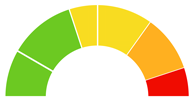1. Technical Attack Analysis:
The vulnerability identified as CVE-2024-11513 pertains to a heap-based buffer overflow in IrfanView when parsing ECW files. This type of vulnerability can allow an attacker to execute arbitrary code on the victim’s machine, which can lead to severe consequences, including:
– Remote Code Execution (RCE) : Exploiting this vulnerability enables the attacker to run malicious code on the target system. This could lead to unauthorized access, data theft, or complete system compromise.
– User Interaction Required : The requirement for user interaction (e.g., opening a malicious file or visiting a malicious page) necessitates social engineering tactics, such as phishing, to lure victims into exposing their systems.
– Potential for Malware Delivery : Successful exploitation can serve as a vector for deploying additional malware, such as ransomware or spyware, further compromising the victim’s data and privacy.
– Impact on Confidentiality, Integrity, and Availability : Depending on the attacker’s intent, the exploitation could lead to data breaches (confidentiality), unauthorized modifications (integrity), or denial-of-service conditions (availability).
2. Mitigation Measures:
To mitigate the risks associated with CVE-2024-11513, organizations and users should implement the following measures:
– Strengthen Security Configurations :
– Enable multi-factor authentication (MFA) for accounts accessing sensitive resources.
– Restrict permissions and user privileges to the minimum necessary for tasks.
– Disable auto-opening of files in IrfanView and similar applications.
– Utilize Specific Tools or Security Software :
– Install and maintain updated antivirus software capable of detecting malicious files.
– Implement an intrusion detection system (IDS) to monitor for unusual behavior and file access patterns.
– Use application whitelisting to restrict execution of unauthorized applications.
– Implement Monitoring and Reporting Practices :
– Enable detailed logging of file accesses and application events related to IrfanView.
– Set up alerts for unusual file access, particularly for ECW files or files opened by IrfanView.
– Regularly review logs and alerts to identify and respond to potential incidents.
By following these steps, users and organizations can significantly reduce the likelihood of successful exploitation of the CVE-2024-11513 vulnerability and enhance their overall cybersecurity posture.


